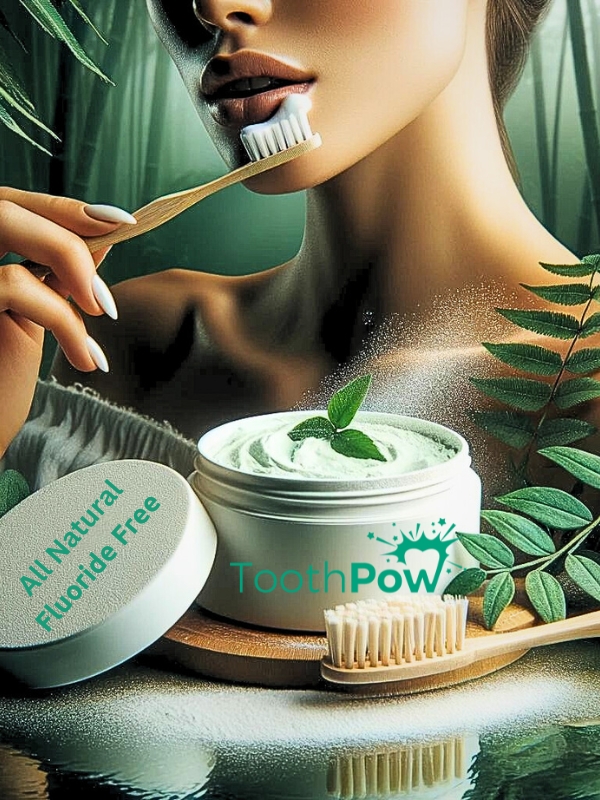Choosing the Right Toothpaste
Welcome to the essential guide for maintaining optimal oral health! With an overwhelming array of options available, selecting the perfect toothpaste can be a daunting task. This comprehensive guide will delve into the crucial considerations for choosing toothpaste that best suits your individual needs. From whitening and sensitivity to tartar control and fluoride content, we will explore the diverse range of toothpaste options on the market. Additionally, we will provide insights into the importance of consulting with dental professionals to ensure that your toothpaste aligns with your specific oral health requirements. By the end of this guide, you will be equipped with the knowledge and confidence to make an informed decision when faced with the myriad of toothpaste choices. Get ready to discover the key to a brighter, healthier smile through the power of choosing the right toothpaste .

Key Factors to Consider When Choosing Toothpaste
When it comes to oral hygiene, choosing the right toothpaste is crucial for maintaining healthy teeth and gums. With a myriad of options available in the market, it can be overwhelming to select the best toothpaste for your specific needs. Here are some key factors to consider when choosing toothpaste:.
Ingredients to Look For
The ingredients in toothpaste play a significant role in its effectiveness. Look for toothpaste that do not contain fluoride, instead natural ingredients for preventing tooth decay and strengthening enamel. Additionally, ingredients such as calcium carbonate, hydrated silica, and baking soda can help remove surface stains and plaque, promoting overall oral health.
Consideration for Sensitive Teeth
If you have sensitive teeth, it is important to choose a toothpaste specifically formulated for this condition. Look for toothpaste that is designed for sensitive teeth and contains ingredients such as potassium nitrate or strontium chloride, which can help alleviate sensitivity and provide relief.
Whitening Toothpaste
While these toothpastes can be effective in removing minor stains, it is important to manage expectations. For more significant whitening results, professional dental treatments may be necessary.
Over-the-Counter Toothpaste for Sensitive Teeth
Over-the-counter toothpaste for sensitive teeth can be effective for many individuals. However, in cases of severe sensitivity, a dentist may recommend prescription-strength toothpaste with higher concentrations of desensitizing agents. It is important to consult with a dental professional to determine the best course of action for managing tooth sensitivity.
Rinsing After Brushing
It is generally recommended to avoid rinsing with water immediately after brushing to allow the tooth strengthening ingredients in the toothpaste to remain in contact with the teeth for a longer period. This can enhance the effectiveness of the nano-hydroxyapatite in strengthening the enamel and preventing tooth decay.
Restoring Enamel
While toothpaste cannot restore enamel that has been lost, certain toothpaste formulations may help remineralize the enamel to some extent. Look for toothpaste that contains calcium and phosphate ions, as these minerals can aid in the remineralization process.
Aloe Vera Toothpaste
Aloe vera toothpaste is known for its natural and soothing properties. It can be a good option for individuals looking for a gentle and natural toothpaste. Aloe vera has been associated with anti-inflammatory and antibacterial effects, which can contribute to overall oral health.
Charcoal Toothpaste or Powder
Charcoal toothpaste and powder have gained popularity for their purported whitening and detoxifying properties. However, it is important to approach these products with caution. Charcoal can be abrasive and may cause damage to the enamel and gums if used excessively. It is advisable to consult with a dentist before using charcoal-based toothpaste or powder.
Choosing the right toothpaste involves considering various factors such as ingredients, specific dental needs, and personal preferences. By understanding these key factors, individuals can make informed decisions when selecting toothpaste that best suits their oral health requirements. Always consult with a dental professional for personalized recommendations and guidance on maintaining optimal oral hygiene.

Different Types of Toothpaste
When it comes to oral hygiene, choosing the right toothpaste is essential for maintaining a healthy smile. With a wide array of options available, it can be overwhelming to navigate through the different types of toothpaste. In this section, we will explore three popular categories: Whitening Toothpaste, Gel vs. Paste, and Natural and Organic Options.
Whitening Toothpaste
Many individuals desire a brighter, whiter smile, and whitening toothpaste is designed to help achieve this goal. These toothpastes often contain mild abrasives or gentle polishing agents to remove surface stains from the teeth. Additionally, they may include peroxide or other chemicals to help lighten the color of the teeth over time. It's important to note that while whitening toothpaste can be effective in removing surface stains, they may not dramatically change the natural color of your teeth. For more significant whitening results, professional dental treatments may be necessary.
Gel vs. Paste vs Powder
One common debate in the world of toothpaste is the choice between gel and paste formulations. Both gel and paste toothpastes are effective in cleaning teeth, but they have some differences in texture and composition. Gel toothpaste often has a smoother consistency and can be more appealing to individuals who dislike the gritty texture of paste toothpaste. On the other hand, paste toothpaste typically contains more abrasives, making it slightly more effective in removing plaque and stains. Lastly we have the most natural of its kind the how brushing teeth began which is in a form of a powder. Slightly wet your bristle dip in and brush! Some may find the texture a bit strange at first. Ultimately, the choice between gel and paste toothpaste comes down to personal preference, as both types can provide excellent oral hygiene benefits.
Natural and Organic Options
In recent years, there has been a growing interest in natural and organic toothpaste options. These products are formulated with natural ingredients such as baking soda, essential oils, and herbal extracts, and are free from artificial flavors, colors, and preservatives. Many individuals are drawn to natural and organic toothpaste due to concerns about the potential health risks associated with certain chemicals found in traditional toothpaste. While natural and organic toothpaste can be a great choice for those seeking a more holistic approach to oral care, ToothPow has Xylitol as a key ingredient in preventing tooth decay .
The world of toothpaste offers a diverse range of options to cater to individual preferences and oral care needs. Whether you're looking to brighten your smile, debating between gel and paste formulations, or seeking a more natural approach to oral hygiene, there is a toothpaste out there for you. By understanding the different types of toothpaste available, you can make an informed decision to support your overall oral health and maintain a radiant smile.

How to Select the Right Toothpaste for Your Needs
Consulting with a Dentist
When it comes to selecting the right toothpaste for your needs, consulting with a dentist is a crucial first step. Dentists are trained professionals who can provide personalized recommendations based on your oral health needs. They can assess your specific dental concerns, such as sensitivity, enamel strength, or gum health, and recommend toothpaste formulations that address these issues. Additionally, if you have any underlying dental conditions or are undergoing specific treatments, your dentist can advise on toothpaste options that complement your treatment plan.
Personal Preferences and Needs
Understanding your personal preferences and needs is essential in choosing the right toothpaste. For example, if you prefer a natural approach, you may opt for fluoride-free or herbal toothpaste. If you have sensitive teeth, you might prioritize toothpaste designed specifically for sensitivity. Consider factors such as flavor, texture, and additional benefits like whitening or tartar control. By aligning your toothpaste choice with your preferences and needs, you can ensure a more satisfying oral care experience.
Understanding Toothpaste Ingredients
To make an informed decision about toothpaste, it's important to understand common toothpaste ingredients. Ingredients like nano-hydroxyapatite and Xylitol are used to alleviate tooth sensitivity. By familiarizing yourself with these ingredients, you can identify which formulations are best suited to address your oral health concerns.
Types of Toothpaste
Toothpaste comes in various types, each tailored to different oral care needs. Some common types include fluoride toothpaste, whitening toothpaste, desensitizing toothpaste, and natural toothpaste. Each type offers unique benefits, so it's important to select one that aligns with your specific requirements. For instance, if you're looking to brighten your smile, a whitening toothpaste may be suitable, while those with sensitive teeth may benefit from a desensitizing formula.
Factors to Consider When Choosing Toothpaste
Several factors should be considered when choosing toothpaste. These include your oral health needs, any existing dental conditions, and the presence of specific ingredients that you may want to avoid. Additionally, factors such as age, lifestyle, and dietary habits can influence your toothpaste selection. By taking these factors into account, you can narrow down the options and find a toothpaste that best suits your individual requirements.
How to Properly Use Toothpaste for Maximum Benefits
Using toothpaste properly is essential for maximizing its benefits. It's recommended to use a pea-sized amount of toothpaste for adults and a smaller amount for children to minimize swallowing. Brushing for at least two minutes, twice a day, and following proper brushing techniques can enhance the effectiveness of the toothpaste. Additionally, be mindful of rinsing after brushing – while some toothpaste benefits are enhanced by not rinsing, others may require rinsing for optimal results.
Selecting the right toothpaste involves considering various factors such as professional advice, personal preferences, ingredient knowledge, and oral health needs. By taking a thoughtful approach to choosing toothpaste, you can ensure that your oral care routine is tailored to your specific requirements, ultimately contributing to improved dental health and overall well-being.

Conclusion
Choosing the right toothpaste is essential for maintaining good oral hygiene. With a myriad of options available, it's important to consider factors such as ingredients, sensitivity, and specific dental needs. Remember to consult with your dentist for personalized recommendations.
For more tips on dental care and product recommendations, visit ToothPow.com Stay informed and make the best choices for your oral health.


